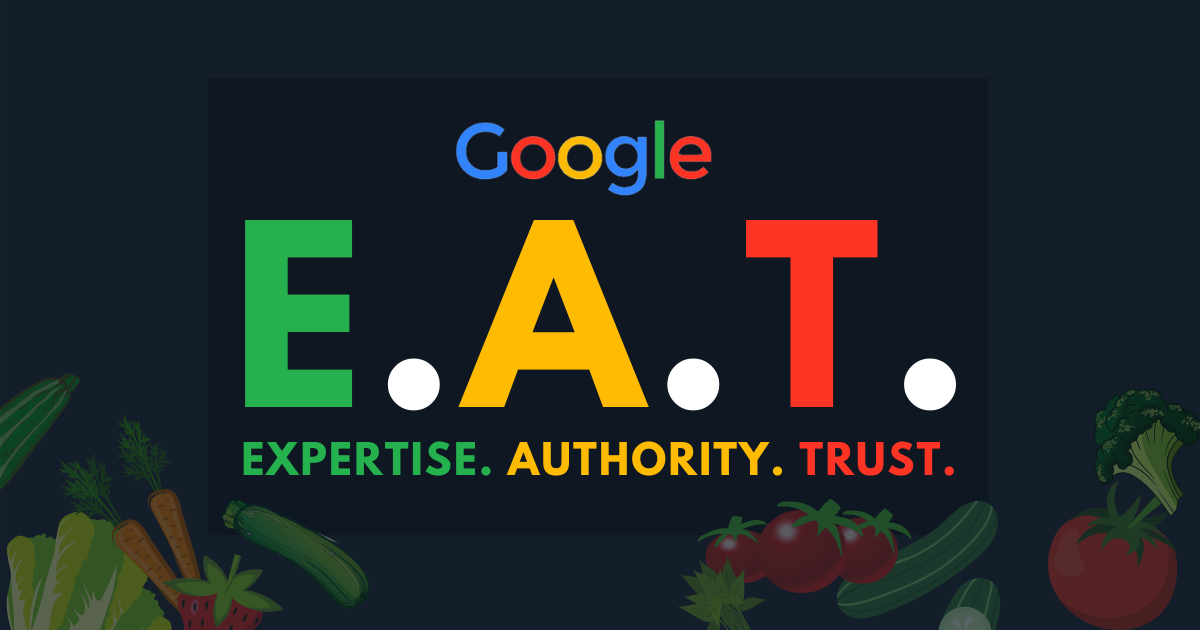
In today’s highly competitive digital landscape, it’s crucial for businesses to understand and implement the latest strategies to stay visible and relevant online. One such strategy that has gained significant importance is EAT – Expertise, Authoritativeness, and Trustworthiness. But what exactly is EAT and why is it so crucial in digital marketing?
In this comprehensive guide, we unravel the importance of EAT and its impact on your online presence. Whether you’re a small business owner or a seasoned digital marketer, understanding EAT can help you enhance your website’s authority, build trust with your audience, and ultimately improve your search engine rankings.
We’ll dive deep into each component of EAT, exploring how expertise in your industry, establishing authoritativeness through quality content, and fostering trust with your audience can make a significant difference in your digital marketing efforts. We’ll also provide practical tips and strategies to maximize the benefits of EAT.
So, if you’re ready to take your digital marketing game to the next level, join us as we demystify the importance of EAT and show you how to leverage it for success in the ever-evolving online world.
Understanding EAT in digital marketing
EAT stands for Expertise, Authoritativeness, and Trustworthiness. It is a set of guidelines established by Google to evaluate the quality and reliability of websites. Google aims to provide the best possible search results to its users, and EAT plays a vital role in determining the credibility and relevance of a website.
The importance of Expertise in EAT
Expertise is a crucial component of EAT. It refers to the knowledge and skills that you and your team possess in your specific industry or niche. Demonstrating expertise through your content and website can significantly impact your digital marketing efforts.
One way to showcase your expertise is by creating high-quality and informative content. This can be done through blog posts, articles, case studies, or whitepapers. By providing valuable and accurate information, you establish yourself as a reliable source of knowledge in your field.
Another way to demonstrate expertise is by highlighting the qualifications and experience of your team members. Including author bios and credentials on your website can help build trust with your audience and establish your authority in the industry.
The importance of Authoritativeness in EAT
Authoritativeness is another key element of EAT. It refers to the reputation and influence your website has within your industry. Building authoritativeness can help improve your online visibility and attract a larger audience.
One way to establish authoritativeness is by acquiring backlinks from reputable and relevant websites. Backlinks act as endorsements, indicating to search engines that your website is a trusted source of information. This can significantly improve your search engine rankings and increase your organic traffic.
Another way to build authoritativeness is by guest posting on industry-leading websites. By contributing valuable content to established platforms, you not only gain exposure to a larger audience but also enhance your reputation as an industry expert.
The importance of Trustworthiness in EAT
Trustworthiness is the third and equally important component of EAT. It refers to the level of confidence and reliability users have in your website and brand. Building trust is crucial in digital marketing as it encourages user engagement, repeat visits, and ultimately, conversions.
One way to establish trustworthiness is by providing social proof. This can be done through customer reviews, testimonials, or case studies that highlight positive experiences with your brand. Positive feedback from satisfied customers can significantly impact the perception of your brand and help build trust with potential customers.
Another way to foster trust is by ensuring your website is secure and adheres to industry standards and best practices. Implementing SSL certificates, displaying trust badges, and providing secure payment options can help alleviate any concerns users may have regarding the safety and security of their personal information.
The impact of EAT on SEO rankings
Understanding the importance of EAT is crucial to improving your search engine rankings. Google’s algorithms consider EAT as a ranking factor, meaning websites with higher levels of expertise, authoritativeness, and trustworthiness are more likely to appear higher in search results.
By focusing on enhancing your expertise, establishing authoritativeness, and fostering trust with your audience, you can improve your website’s visibility and attract more organic traffic. This, in turn, can lead to higher conversion rates and business growth.
Implementing EAT in your digital marketing strategy
Now that you understand the importance of EAT, it’s time to implement it into your digital marketing strategy. Here are some practical tips and strategies to maximize the benefits of EAT:
### Building expertise through content creation and curation
– Conduct thorough research on your industry and target audience to gain a deep understanding of their needs and preferences.
– Create high-quality and informative content that addresses the pain points of your audience and offers valuable solutions.
– Stay updated with the latest trends and developments in your industry and provide insights and analysis through your content.
– Curate content from reputable sources and share your expert opinions and perspectives to establish yourself as a thought leader in your field.
### Establishing authoritativeness through backlinks and endorsements
– Identify authoritative websites and influencers in your industry and reach out to them for potential collaboration or guest posting opportunities.
– Acquire high-quality backlinks from relevant and reputable websites through guest posting, content partnerships, or influencer endorsements.
– Build relationships with industry leaders and experts through networking events, conferences, or online communities.
– Leverage social media platforms to amplify your content and engage with your audience, further establishing your authoritativeness.
### Building trustworthiness through customer reviews and testimonials
– Encourage satisfied customers to leave reviews and testimonials on platforms such as Google My Business, Yelp, or Trustpilot.
– Display positive reviews and testimonials prominently on your website to showcase the trust others have in your brand.
– Respond promptly and professionally to any negative feedback or customer concerns, showing your commitment to customer satisfaction.
– Provide clear and transparent information about your products or services, pricing, shipping, and return policies to build trust with potential customers.




